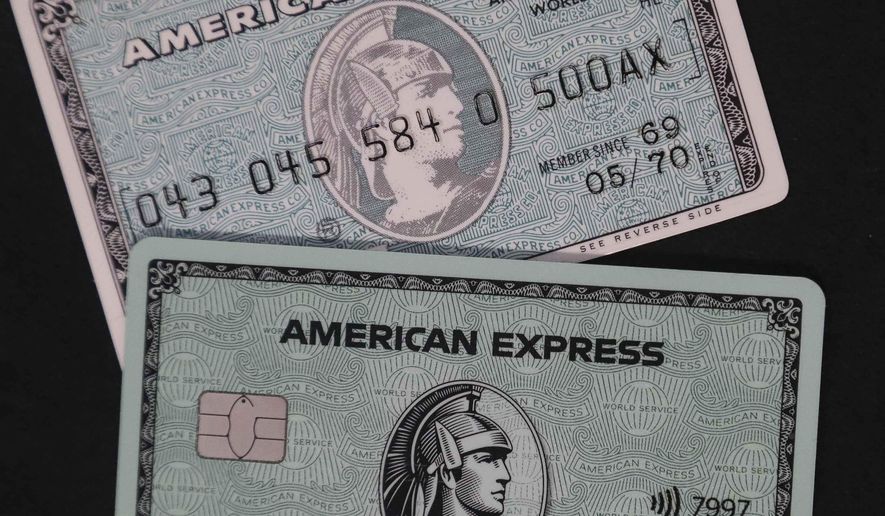The issuer of American Express credit cards in Russia is embroiled in a messy conflict with creditors that offers a window into a complex web of international financial problems expected to become increasingly prevalent as creditors around the world scramble to get paid back in a global economy struggling through the COVID-19 era.
The squabble involving an entity known as Russian Standard Ltd. began in 2017, when the entity, whose controlling shareholder happens also to be the founder of a famous St. Petersburg-based vodka company, defaulted on a notably large Eurobond payment.
The total amount of the Eurobond — a form of private debt issued in Europe — is more than $400 million, according to financial news outlets, which have noted that the collateral, or back-up asset, for that sum is a 49 percent stake in Russian Standard Bank, which issues Amex cards in Russia.
While American Express itself is not involved in the dispute, and industry insiders say its cardholders won’t be affected, reports by Reuters and others note that the 49 percent stake in Russian Standard Bank at issue is held by Roustam Tariko, the founder of Russian Standard vodka.
Over the years, creditors have made several attempts to get the Eurobond paid back in an effort that has largely been ignored by mainstream international media. However, that may be about to change because of a recent development that could end up bringing the case into Russia’s legal system and the potentially embarrassing spotlight of Russian politics.
With little fanfare last month, one of the Eurobond creditors, Citibank NA in London, suddenly notified fellow holders of the debt that it was contemplating trying to force the controlling shareholder of Russian Standard Bank to sell the 49 percent stake in the bank that was pledged as collateral for the bond.
According to the notice, a copy of which was obtained by The Washington Times, Citibank wrote that it may seek avenues of “applicable Russian law” to ensure that the Eurobond gets paid back.
Significant media attention has recently gone to burgeoning sovereign wealth troubles threatening the global economy because of the COVID-19 crisis, while global lending institutions such as the World Bank and the International Monetary Fund scramble to address the reality that dozens of developing nations around the world are simply incapable of paying back loans.
While some analysts say banks in Russia are generally well prepared for any impending shocks to the financial system, the debt dispute involving Citibank NA and Russian Standard Ltd. may be a case study of woes that could be about to occur increasingly in the behind-the-scenes world of private debt issuance on the international stage.
Citibank NA declined to comment for this article. American Express also declined to comment.
A Switzerland-based investment fund called Pala Assets Holdings Ltd., which owns more than 25 percent of Russian Standard Ltd.’s bonds, said that it supports Citibank’s plan for recovering the debt and is cooperating with it. In a statement, the fund said it wants to distribute the bank shares to all the bondholders in proportion to the Eurobonds they own.
“We are confident that the new Russian Standard shareholders from among the lenders will ensure transparency in corporate governance,” said David Nietlispach, portfolio manager for Pala Assets Holdings. “As for the future, the emergence of international investors in the bank will be a positive sign for both AmEx and the market. The card issuer will only benefit in the case that new sound shareholders appear.”
Russian Standard Ltd. told The Times that it is in contact with the parties involved in the Eurobond issue, is open to negotiations with them, and wants to find a mutually acceptable solution.
A spokesperson for the entity also stressed in an emailed statement that the bonds were issued by a special purpose vehicle “named Russian Standard Limited, which is not part of Russian Standard Bank.”
“Russian Standard Bank has no obligations on the notes and is not a party in negotiations between the Issuer and noteholders,” the statement said, adding that Russian Standard Ltd. has been trying “in good faith” for the past three years to get the issue resolved but hasn’t been able to reach a deal “due to the position of several bondholders.”
Russian Standard Bank has reportedly been the exclusive issuer of American Express credit cards in Russia for 15 years. The bank is also the issuer of cards for several other players in Russia’s consumer credit market.
While American Express isn’t a party to the Eurobond fight, the company is known to vigorously defend its reputation, especially on matters that deal with credit and debt, its basic business.
American Express works with more than a hundred banks around the world that issue Amex cards.
• Guy Taylor can be reached at gtaylor@washingtontimes.com.




Please read our comment policy before commenting.